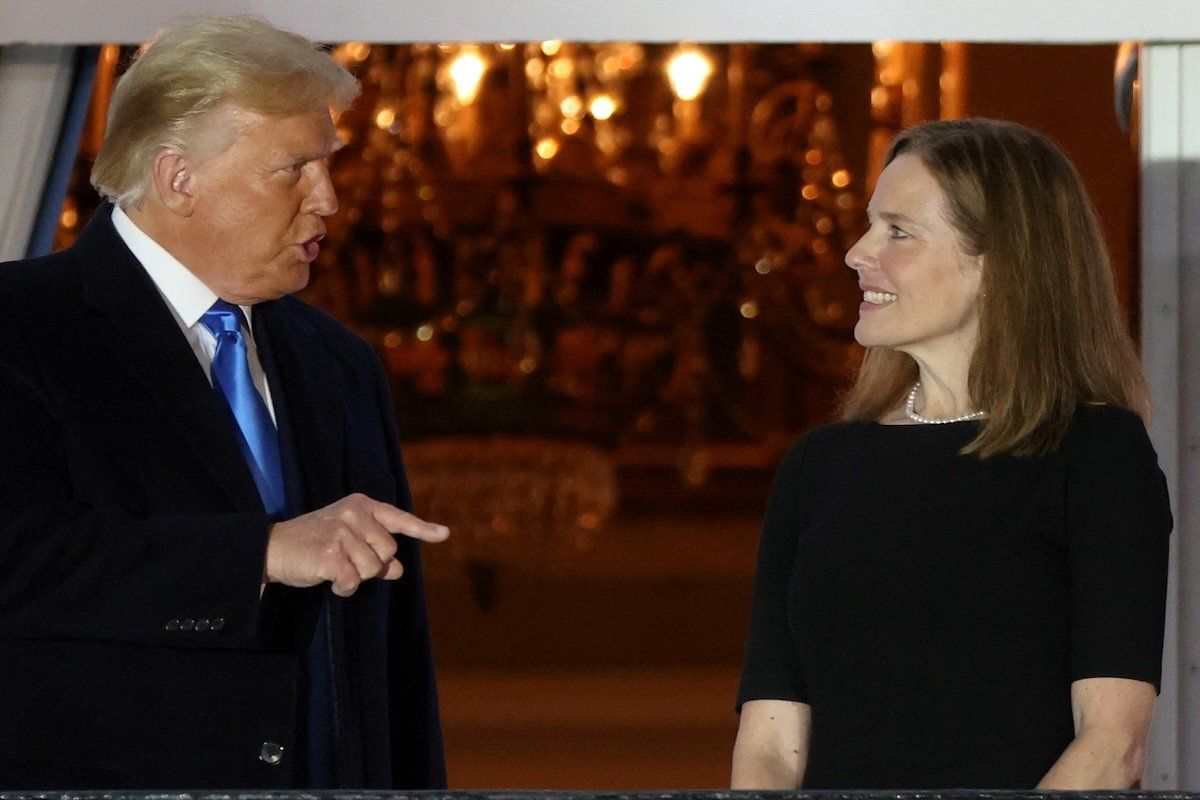Should a former president be held accountable for crimes committed while in office? That was the basic, yet incredibly weighty, question before the Supreme Court on Thursday when it began hearing oral arguments in a case related to former President Donald Trump’s efforts to overturn the 2020 election results.
Trump, who doesn’t want to face trial in the federal Jan. 6 case against him before his expected rematch with President Joe Biden on Election Day, has declared that presidents should have absolute immunity. He’s effectively argued that presidents should be above the law.
What happened? Some of the conservative justices (three of whom were appointed by Trump) expressed concern that allowing former presidents to be criminally prosecuted could present a burden to future commanders-in-chief. They seemed skeptical of Trump’s sweeping claims but appeared open to the idea that presidents should have immunity for some actions. There was a great deal of focus on whether a distinction should be established between official acts and private behavior.
Justice Neil Gorsuch, a Trump appointee, emphasized that the court was “writing a rule for the ages.” But Justice Amy Coney Barrett, another Trump appointee, agreed with the notion that the ex-president’s legal team was pushing a “radical” idea on presidential immunity.
Meanwhile, liberal justices worried that if the court ruled in Trump’s favor, it could open the door for future presidents to commit crimes. “If there’s no threat of criminal prosecution, what prevents the president from just doing whatever he wants?” asked Justice Ketanji Brown Jackson.
TLDR: The court might rule that presidents should be granted some, but not absolute, immunity from criminal prosecution. This means the case could be kicked back down to the lower courts.
What’s next? Trump’s Jan. 6 trial was postponed to await the court’s ruling, which could come anytime between now and the end of June. Whether that trial occurs before voters go to the polls in November will depend on the timing and nature of the court’s final ruling.
- Who cares if the Supreme Court justices like each other? - GZERO Media ›
- Ian Explains: Does it matter if Americans don't trust the Supreme Court? - GZERO Media ›
- The US Supreme Court’s “upside-down” logic in Trump immunity case - GZERO Media ›
- The US Supreme Court, less trusted than ever, votes on major cases in June: Emily Bazelon on what to expect - GZERO Media ›
- How the Supreme Court immunity ruling changes presidential power - GZERO Media ›
